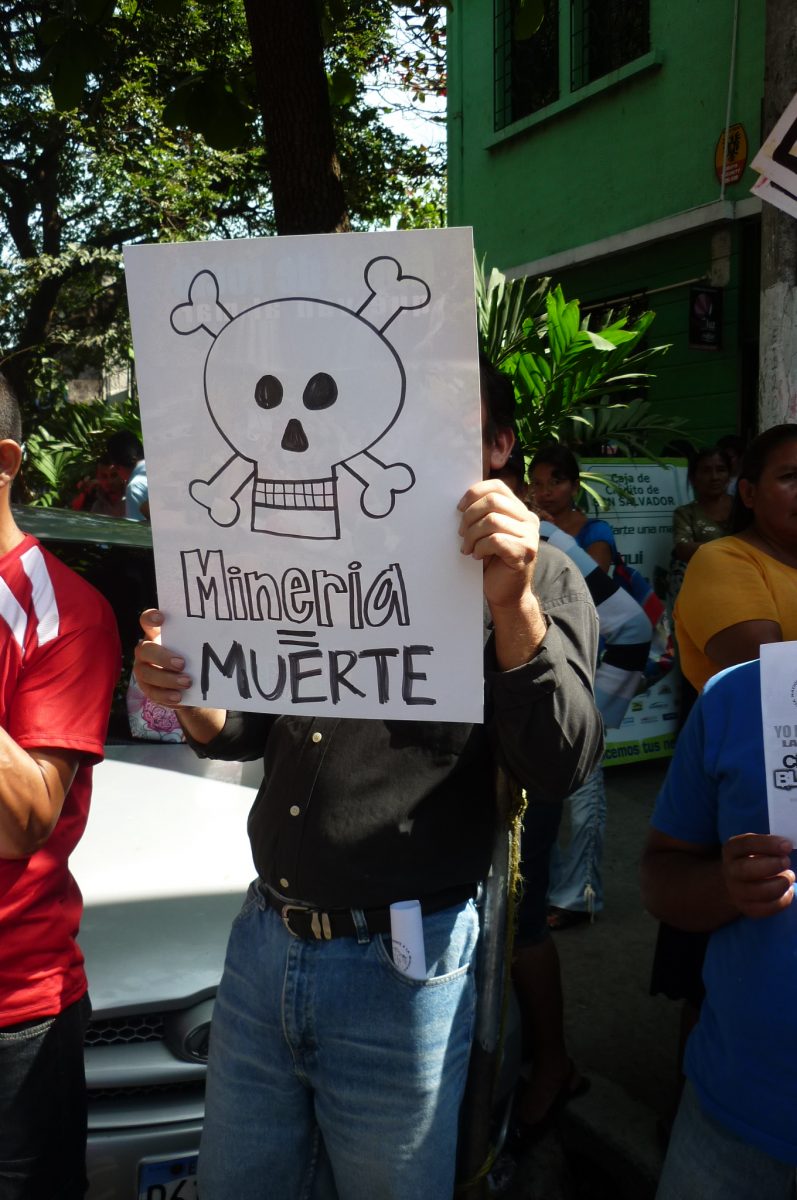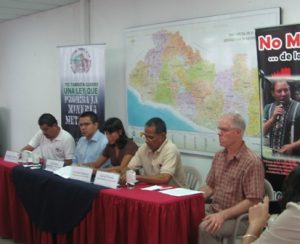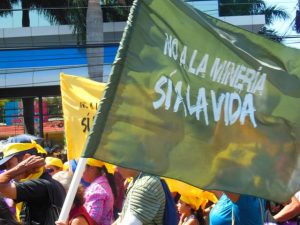Defending Natural Resources, International Meddling
World Bank Tribunal Threatens El Salvador´s Development
By Lauren Carasik
Originally Published on April 22, 2014 by Al Jazeera America
Organization´s Investor Protection Panel Disempowers Marginalized Communities
Last week more than 300 international and national civil society organizations wrote to the president of the World Bank, Jim Yong Kim, during its biannual meeting in Washington, denouncing the bank’s involvement in the case of Pac Rim Cayman LLC v. El Salvador.
Canadian-based transnational mining corporation Pacific Rim sued El Salvador for failing to authorize an extraction permit after the company allegedly invested millions in the exploration of the El Dorado mine in the northeastern province of Cabañas. The controversy has ignited a debate over whether disputes between countries and corporate investors should be adjudicated in national courts or international tribunals.
Pacific Rim, purchased in November by Canadian-Australian OceanaGold, first filed the suit in 2009 arguing that El Salvador should provide compensation for lost investment and future profits. El Salvador claims the company failed to follow proper protocols for issuance of a license. It did not possess title to much of the land considered for the mining project, failed to secure the appropriate environmental authorizations and never submitted the final feasibility study. Despite significant domestic interest in the conflict, Pacific Rim did not allow national courts to adjudicate the case but instead lodged its complaint at the World Bank’s investor protection tribunal. The company is asking for more than $300 million, almost 2 percent of El Salvador’s gross domestic product, in compensation for spending on exploration and for lost future profits.
Labor, grass-roots and human rights organizations argue it is inappropriate for the World Bank, whose mission is alleviating poverty, to preside over disputes that threaten the self-determination of countries. The petitioners argued that Pacific Rim is using the bank’s arbitration mechanism to subvert local governance over issues critical to the well-being of poor communities, which should take precedence over profits for transnational companies.
In June 2012 the International Center for the Settlement of Investment Disputes (ICSID), an arbitration mechanism under the Dominican Republic–Central America Free Trade Agreement, dismissed the suit, citing lack of jurisdiction, but allowed the suit to proceed under El Salvador’s investment law. The law, which at the time provided for international resolution of disputes, has since been amended to ensure that disputes are adjudicated in national courts instead of international tribunals, unless dictated by bilateral trade agreements.



-300x225.jpg)
